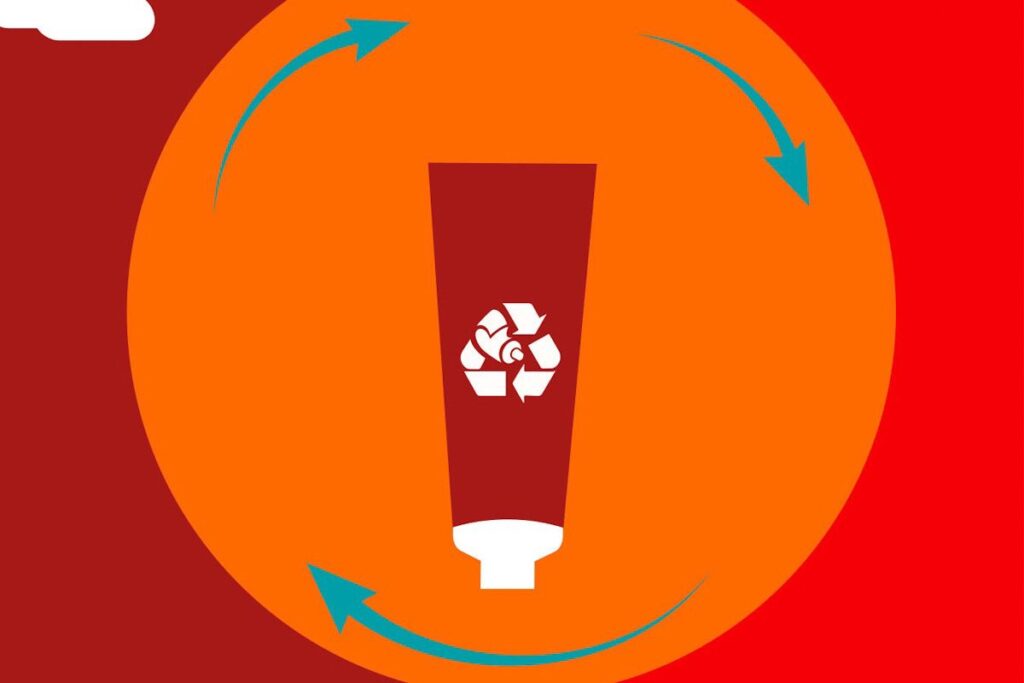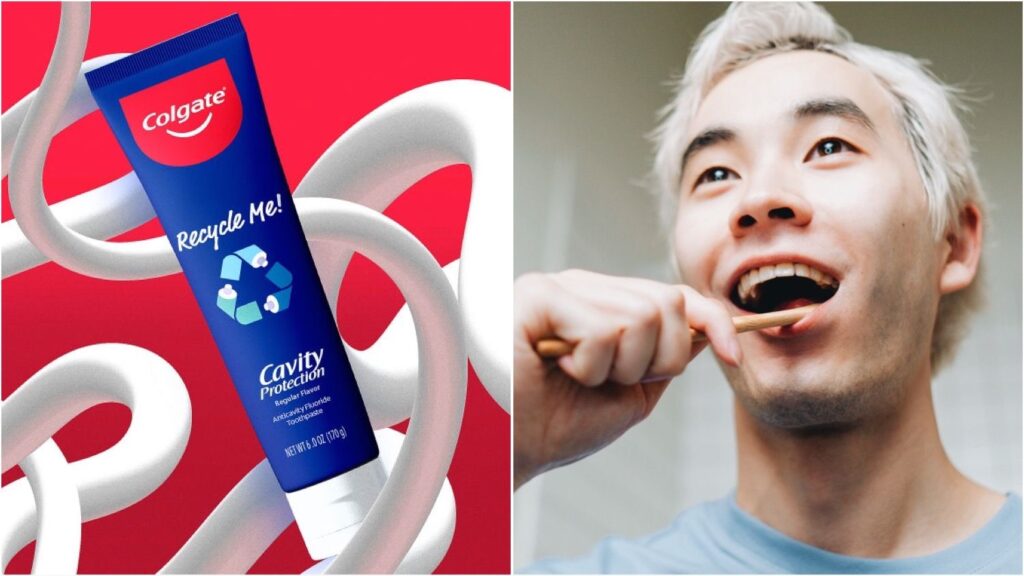Toothpaste is vital for keeping our pearly whites clean and healthy, but there’s a very dirty side to the oral hygiene industry. Due to their plastic and aluminium makeup, toothpaste tubes aren’t easily recycled. This means that, in the U.S., around one billion end up in the landfill every year. But Colgate, the world’s leading toothpaste brand, is launching new recyclable tubes that could reduce this number significantly.
Colgate-Palmolive, the multinational consumer goods company that owns Colgate, has been attempting to improve the environmental impact of its popular toothpaste tubes for more than five years. In 2021, it launched its first recyclable option, made from high density polyethylene (HDPE), in Colgate’s vegan Smile for Good range, first launched in the UK and Europe. (It’s worth noting here, however, that the brand is not certified cruelty-free.)
HDPE is still plastic and it’s not biodegradable, but it is much easier to recycle. It’s often used in milk containers, but has historically been deemed not pliable enough to work in a squeezy toothpaste tube. But Colgate’s engineering team has overcome that problem, and now the company is redesigning four of its best-selling lines with the recyclable packaging. The plan is that, by next year, every single one of its products will be recyclable. Based on sales data from 2018, this means that in theory, if every consumer recycled their Colgate toothpaste tube, nearly 80 million tubes of toothpaste could be kept from the landfill every year.

Colgate’s step towards sustainability
Colgate isn’t alone in its packaging innovation. Several brands, like Georganics, Lush, and Parla, offer toothpaste in tablet form, which are packaged in recyclable jars. But many of these don’t contain fluoride, a natural mineral often included in toothpaste because it helps prevent tooth decay. Dentist Dr. James Fernando told The Guardian last year that there is a lack of concrete scientific evidence that these tablets work effectively.
Colgate’s solution isn’t perfect, but it is a step, and they’re being altruistic about it. To help the rest of the oral hygiene industry cut down on its plastic waste, the company has made its design openly available for other brands to use. It’s also used in some of Tom’s of Maine’s natural toothpastes (the brand is also owned by Colgate-Palmolive).
Greg Corra, Colgate-Palmolive’s director of global packaging and sustainability, is open about the fact that the company still has a long way to go before it can be considered environmentally-friendly. While it rolls out the new recyclable options, Colgate’s team is looking for ways to make its toothpaste packaging refillable and compostable too.
“We’ve got 9 million tubes around the world to worry about right now, so we had to do something now,” Corra told Fast Company. “But we are looking into next-generation materials. We’ve got several irons in the fire.”
From March, Colgate will start packaging its Total Whitening line, as well its Cavity Protection, Max Fresh Cool, and Optic White ranges, in the recyclable tubes.


